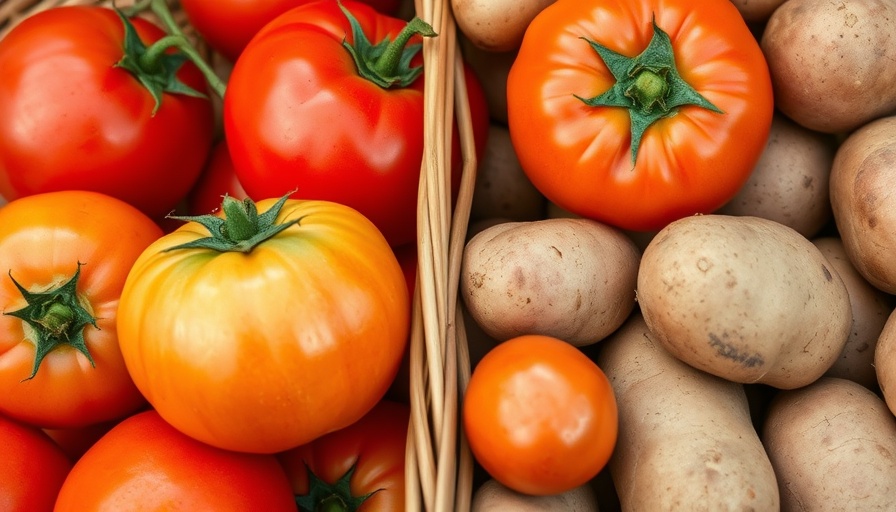
The Surprising History of the Potato: A Journey Through Time
Often regarded as a simple comfort food, the potato holds a rich and intricate history that stretches back millions of years. Recent scientific research offers remarkable insights into the potato's origins, indicating that its development involved a complex hybridization process that began 9 million years ago. This hybridization allowed for a fascinating evolution of one of the world's most essential food sources.
Unlocking the Genetic Code of the Potato
In a groundbreaking study by researchers from the Chinese Academy of Agricultural Sciences, the genetic underpinnings of potato cultivation have been explored in depth. By analyzing cultivated potatoes alongside 44 wild species, scientists conducted advanced genomic sequencing that uncovered a significant genetic exchange between Solanum tuberosum, the modern potato, and its ancestral relatives, including an ancient tomato plant. These findings fundamentally alter our understanding of how potatoes evolved into the staple food we recognize today.
The Evolutionary Journey: Potatoes and Tomatoes
Both potatoes and tomatoes share a common ancestor that existed approximately 13 million years ago. This relationship is more than mere lineage; it's a testament to nature’s ingenuity. Four million years after their ancestors existed, these two species interbred, leading to the emergence of new plant varieties capable of forming tubers. These tubers, designed to store energy and reproduce without seeds, significantly enhanced the plant's ability to thrive in diverse climates.
The Geological Forces Behind Potato Evolution
The environmental backdrop against which potatoes evolved is equally important. During the Miocene epoch, the geological upheaval of the Andes created varying climates that necessitated adaptation among plant species. This period saw the birth of Solanum tuberosum, whose ability to survive and flourish in these new conditions was facilitated by its hybrid nature.
The Significance of Potato Development in Global History
Historically, the introduction of the potato to the Old World caused a revolutionary shift in agricultural practices and societal structures. Between 1700 and 1900, approximately a quarter of population growth in Europe can be attributed to the potato. Its adaptability and high caloric yield became crucial at a time when famines and food shortages were prevalent.
Future Implications: Potatoes in Technological Advancements
Understanding the origins and evolution of the potato is not merely an academic pursuit; it carries significant implications for future agricultural practices and biotechnological innovations. As the global population continues to rise, and challenges such as climate change impact food security, researchers are increasingly looking at genetically informed solutions to enhance crop resilience and productivity.
Human Connection: How Potatoes Enrich Our Lives
Beyond numbers and scientific data, the potato shapes our daily lives—whether it's comforting mashed potatoes at a family gathering, crispy fries at a favorite restaurant, or sumptuous potato dishes from various cultural cuisines. This tuber, rooted in a remarkable evolutionary history, connects us all through shared experiences and culinary traditions.
A Glimpse Into the Future: Potatoes and Biotechnology
With rapid advancements in biotechnology, the future of potatoes might involve genetically engineered varieties that can withstand extreme weather conditions, possess enhanced nutritional profiles, or require less water for cultivation. This mirrors trends seen in other emerging technologies, such as artificial intelligence and robotics, which seek to solve complex issues facing a rapidly evolving world.
The journey of the potato is a striking example of how history and science converge to inform our present and shape our future. As we continue to explore and innovate, understanding these origins serves as a reminder of the intricate web of life and technology that sustains us. Discover more about how innovations in genetics are transforming agriculture and our relationship with food.
 Add Row
Add Row  Add
Add 




Write A Comment